A healthy plant requires organic material such as compost, fertilizer pellets, or weed seed meal added to the ground. Plants leach nutrients from the soil as they grow. So it is essential to replenish it with organic matter regularly. Fortunately, animal waste meets all these requirements. A slow-release fertilizer, manure is a natural product. Plants can grow strong roots, produce good crop quality, and resist pests with their help. Let’s check out how to make sheep manure compost.
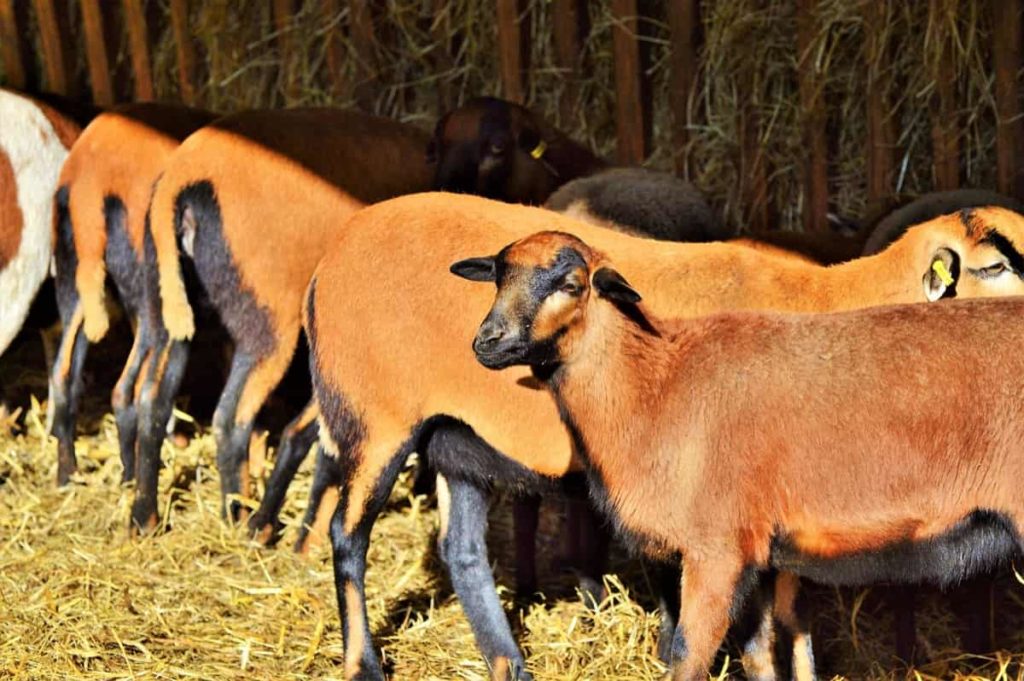
Horse manure, pig manure, and sheep manure are just some animal manure that enriches garden soil. Aerobic bacteria, potassium, nitrogen, and phosphorus are present in these green compost components. Sheep manure that has been well rotted makes an excellent fertilizer. It is believed that aged sheep manure is much more beneficial for crops than cow manure, though it can also depend on the animal’s diet. Farmers should examine how they can utilize sheep waste.
It can be used as compost in their crops, donated to a local farmer union, or sold to a local merchant. The quantity of waste generated by a single sheep should not be underestimated. Adult sheep generate approximately 1360 kilograms of waste annually, including food, hay, and other waste. Manure is produced by mature sheep on average every year in the amount of 900 kilograms. Consequently, a solid and legitimate waste management policy will protect you against environmental (e.g., water pollution) and health problems.
Using sheep manure for gardening is not a new idea. People worldwide have been using animal manures as a very effective organic material in gardens for a long time. Sheep manure is called cold manure because of its low nitrogen content. This manure makes it an excellent addition to any garden and provides adequate nutrition to the soil.
How to make sheep manure compost
Compost sheep manure for organic fertilizer
In addition to urine and feces from sheep, sheep manure may also contain bedding, runoff, spilled feed, and other materials. Decomposing sheep or goat manure waste produces a rich and refined humus material that can be used as a soil adjustment and plant nutrient. As a valuable tool in nutrient management, sheep manure organic fertilizer can reduce the potential for pollution and benefit crops when composted as sheep manure fertilizer.
Turning the compost pile with the Whirlston compost turner machine will keep it aerated and speed up the composting process. Composting sheep manure waste typically takes several days. When compost is piled in long open piles, it typically takes two weeks for it to become finished. The following are the basic steps to make nutrient-rich compost from sheep manure:
- The fresh sheep manure must first be dried. It is recommended that sheep manure have a 50-65% water content. A manure’s moisture content can be reduced in two ways. When preparing compost on a large scale, you should first dewater the sheep manure with a manure drying machine. The manure can also be reduced in moisture by adding straw.
- Once the sheep manure is dried, stack it in the groove and add other raw materials, such as bulking agents. The temperature of sheep manure usually rises to 50°C within the first week. The success of sheep manure compost is evident in that.
- Composting will be sped up if the sheep manure mixture is mixed regularly.
- The temperature will rise after a few weeks, so wait a few weeks and check it out. Manure compost should be thoroughly mixed and turned when the temperature rises above 60°C.
- When the compost temperature drops below 40°C, the compost is ready. After that, sheep manure is composted when the temperature is not fluctuating drastically.
The steps above will take approximately 20 days to compost. Turning the compost off if its temperature is declining is a good idea.
In case you missed it: How to Compost Kitchen Waste with Worms: A Guide to Kitchen Vermiculture
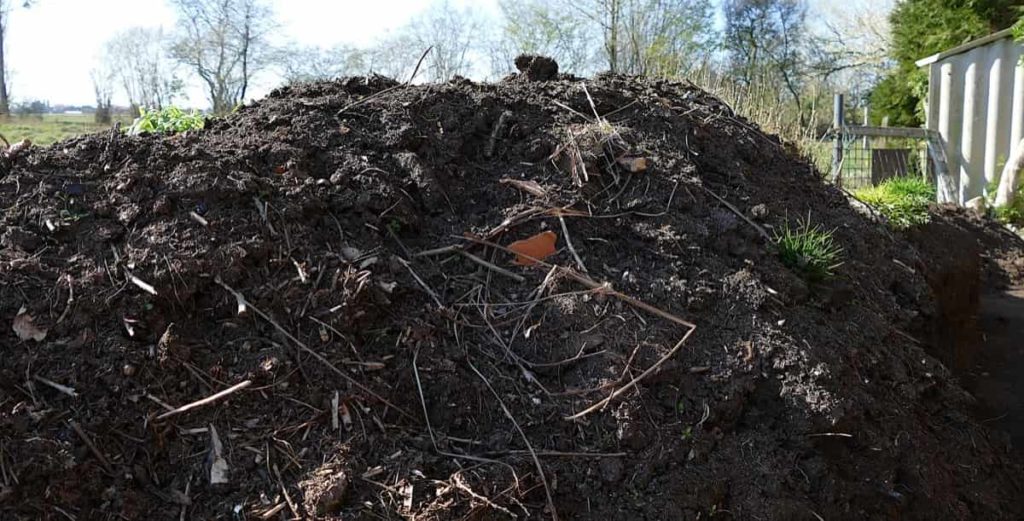
How to prepare sheep manure compost at home
The process of composting sheep manure is similar to composting other animal manures. Before using the manure in the garden, it must be allowed to age. Sheep manure can be composted in bins with regular aeration to ensure proper curing. The sheep manure tea can be drained from compost bins that allow the manure tea to be composted. Tea containing vital plant nutrients can be diluted with water and regularly applied to garden plants.
Instead of spreading fresh dung over the bed, composting sheep manure reduces the risk of E-coli. Composting involves layering browns and greens alternately. Create a brown ground layer, top it with a green layer, and repeat. Adding sawdust, newspaper, pine needles, and leaves to the bin is a good start, followed by sheep manure, eggshells, fish scraps, and even banana peels.
Every three to seven days, turn the compost pile with a shovel or yard fork to encourage fermentation, prevent overheating, reduce excess moisture, and reduce compaction. Depending on the ingredients and the effort put into composting, the compost fertilizer can be ready for use in as little as eight weeks.
Using fresh sheep manure to add nutrients to the soil
Because sheep poop does not smell as strong as other animal manures, it can be used as organic fertilizer for watermelon and lettuce. The garden should also be fertilized with fresh sheep manure. The sheep manure should be shoveled over the area and then raked to form an even layer.
The soil should be spread one to two inches over a new garden. Fertilize blueberries annually with half an inch to an inch of sheep manure compost on an established bed or with sheep manure compost on composted blueberries. Plow it to root depth before applying manure when planting in poor soil.
Nutrients in sheep manure
Approximately 75 percent to 90 percent of the plant nutrients fed to animals are excreted in their manure, making manure an excellent fertilizer. Manure characteristics will reflect the level of protein and inorganic salts in the feed, such as sodium, calcium, potassium, magnesium, phosphate, and chloride. The number of nutrients in manure will depend on the type of animal and how the manure is handled.
For instance, manure containing a lot of bedding will contain fewer nutrients than pure manure. Manure contains a mixture of inorganic and organic nutrients. The inorganic forms are similar to those found in commercial fertilizers. Plants can use them right away after dissolving them in water. In the manure, there are organic forms of plant tissue, cells, and bacteria.
These nutrients are slow-release and cannot be used correctly by plants. However, as the manure decays, they become available to the plants. Moreover, organic matter in manure facilitates soil management, reduces erosion, and makes soil more water-absorbent. Manure lowers soil pH, but not as much as inorganic fertilizers when applied regularly.
In case you missed it: Common Sheep Diseases, Symptoms, and Treatment: Check How this Guide Helps Sheep Farmers
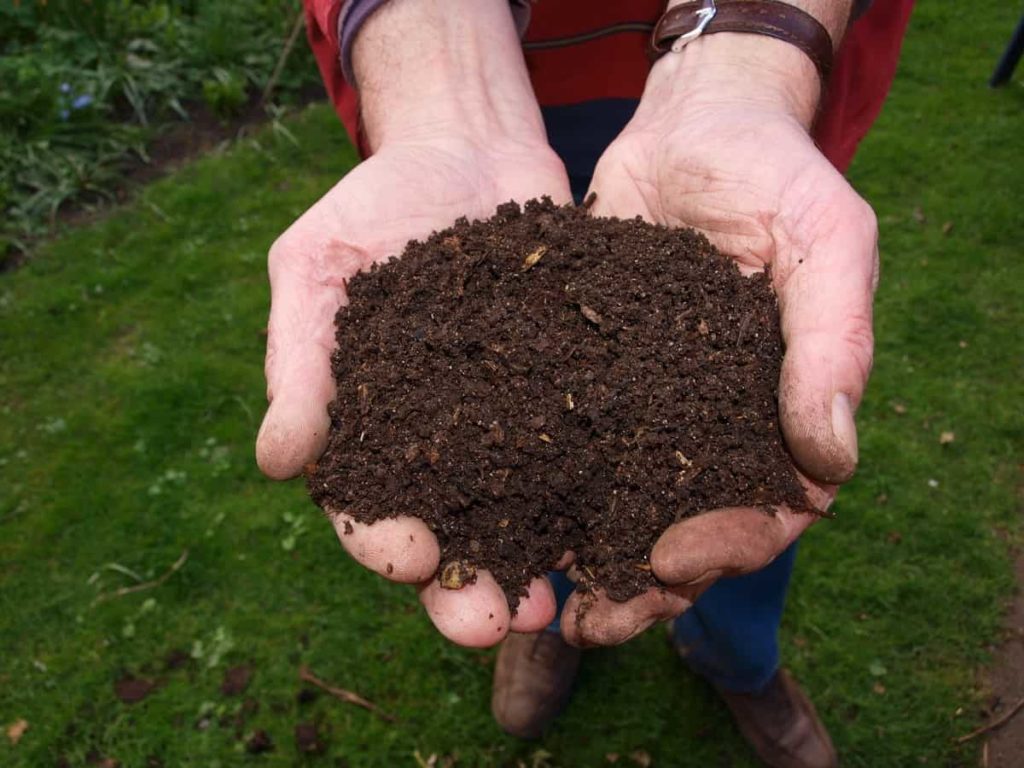
Typical nutrient composition of sheep manure
| Manure | Nitrogen (N)% | Phosphorus (P)% | Potassium (K)% | Moisture |
| Sheep manure | 1.4 | 0.5 | 1.2 | 65 |
- When soil is nutrient-poor, sheep manure is the best way to enrich the soil. Ideally, it should be composted before being used on gardens and crops.
- There is high nitrogen, phosphorus, and potassium concentration in sheep manure, which is essential for plant growth. As well as calcium and magnesium, it also contains other nutrients that can benefit plants.
- A plant’s cell walls are strengthened by calcium, which gives it its support and structure. The growth of calcium-deficient plants is therefore distorted.
- Magnesium is essential for photosynthesis. In addition, it aids in the transport of other minerals within the plant. Therefore, a magnesium deficiency in plants causes their leaves to become discolored and brittle, eventually falling off prematurely.
When is the best time to feed plants with sheep manure fertilizer?
When the compost is aged and finished, it is ready to be used as a soil fertilizer. It is best not to apply manure at the time of planting or during the growing season. In a vegetable patch, sheep manure compost or fresh manure is best applied in the fall. It is safe to add sheep manure tea to the plants at any time.
Apply sheep compost to the garden
It is perfectly safe for vegetable and flower gardens and will make them bloom like never before. Applying a thick layering technique or composted sheep manure into the soil applies composted sheep manure to gardens. During watering, sheep manure tea can be diluted and applied to plants. All garden and landscape plants benefit from using sheep manure as fertilizer. Depending on the type, there are various ways to apply mulch, fertilizer, and organic material to a garden.
Some go into the soil, while others spread over the bed. For example, you can feed the veggie garden with sheep manure by applying 15 to 20 pounds of sheep manure compost per 100 square feet or by spreading a two-inch deep layer over the whole bed. Use a rake to work the compost into the soil after shoveling it over the garden. The soil can also be spread over the bed if it is already decent. Manure compost must be worked four to eight inches deep into poor soils.
In case you missed it: How to Start Goat Farming in Philippines: Goat Breeds and Check How this Guide Helps Beginners
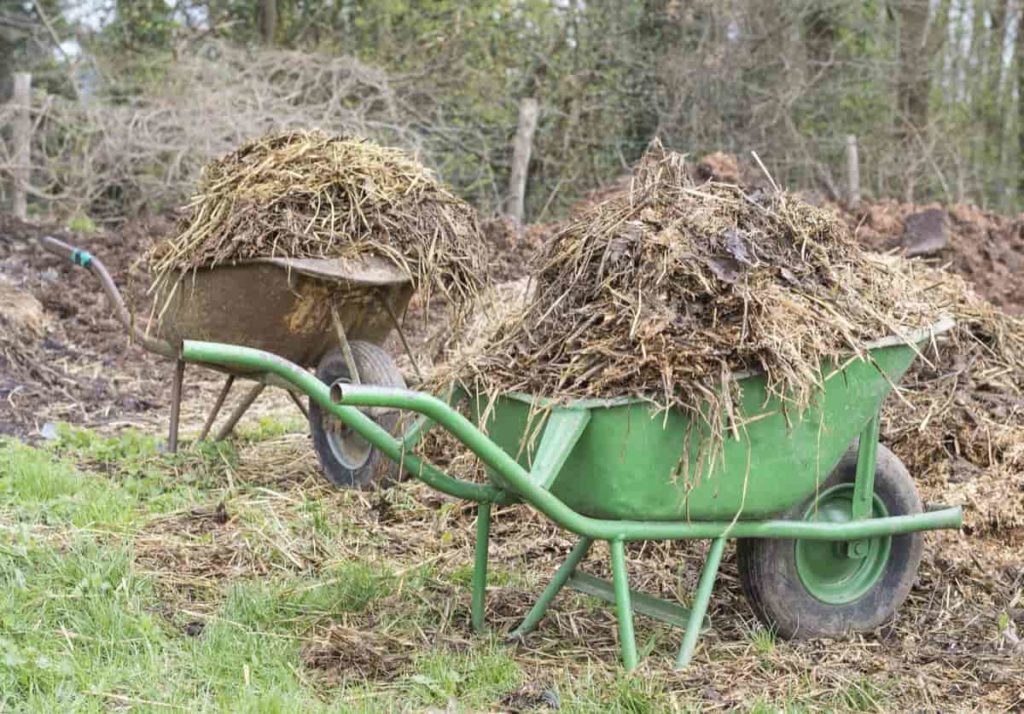
Using sheep manure to make a manure tea
To grow optimally, the plants will deplete the soil of nutrients. Fortunately, organic matter such as fresh sheep or compost manure improves the soil structure and replenishes the bed. Making manure tea is another way to benefit from sheep manure. The nutrient-rich solution is easy to prepare and provides excellent crop fertilization without digging into the soil. Manure tea can be made in a couple of ways. The easiest method is to throw everything into a bucket.
- Two-thirds of a five-gallon bucket should be filled with water, and the remainder should be filled with sheep manure.
- Stir the water-manure every day for a couple of days after steeping.
- On the final day of steeping, wait an hour until the solids settle, and then pour the liquid into a watering can.
- You can use this liquid to water your plants. However, ensure not to sprinkle this liquid over leaves or flowers, as it contains bacteria that will destroy them.
Using sheep manure as fertilizer
Sheep poop is another herbivore manure that is beneficial for soil amendment and plant nutrition in addition to cow manure. Slow-release natural fertilizers like sheep manure are excellent. It is a good fertilizer because it contains a lot of nitrogen and other nutrients. As a result, roots can penetrate the soil more quickly and absorb water and nutrients better. As with cattle and poultry, sheep manure is an ideal organic waste for fertilizing plants, either composted or fresh.
Composting cow manure is popular, but other poops can also be composted. It is also possible to use sheep poop as organic mulch or to compost the manure to be used as a portion of plant food. Decomposing hot manures like chicken or horse is quick and rich in nutrients. Nevertheless, these types inhibit seed formation and burn the roots of plants. Sheep dung, on the other hand, releases nutrients slowly and is safe to add to newly planted soil.
Does sheep manure need to be composted?
The dung of goats, sheep, llamas, and alpacas consists of hard pellets, unlike the loose, crumbly dung of cows and horses. Therefore, nitrogen-rich pellets must be aged or composted before being tilled into the soil. Furthermore, manure from these animals is usually collected with their bedding material, providing the carbon source they need to balance their nitrogen levels.
Is sheep manure good for the garden?
One of the wealthiest fertilizers is sheep manure. A natural product rich in organic matter, it does not burn plants and is an ideal way to make heavy soil crumbly or mix it into poor dirt that lacks richness. All kinds of crops can be grown with it. In addition, it contains lots of potassium, which strengthens the cell walls of plants and is an excellent soil improver and conditioner. Other cold manures are the llama, alpaca, and goat, which are also low in nutrients but excellent for building up and improving the soil.
In case you missed it: Tips to Start a Goat Farming Business: Check How this Guide Helps Beginners
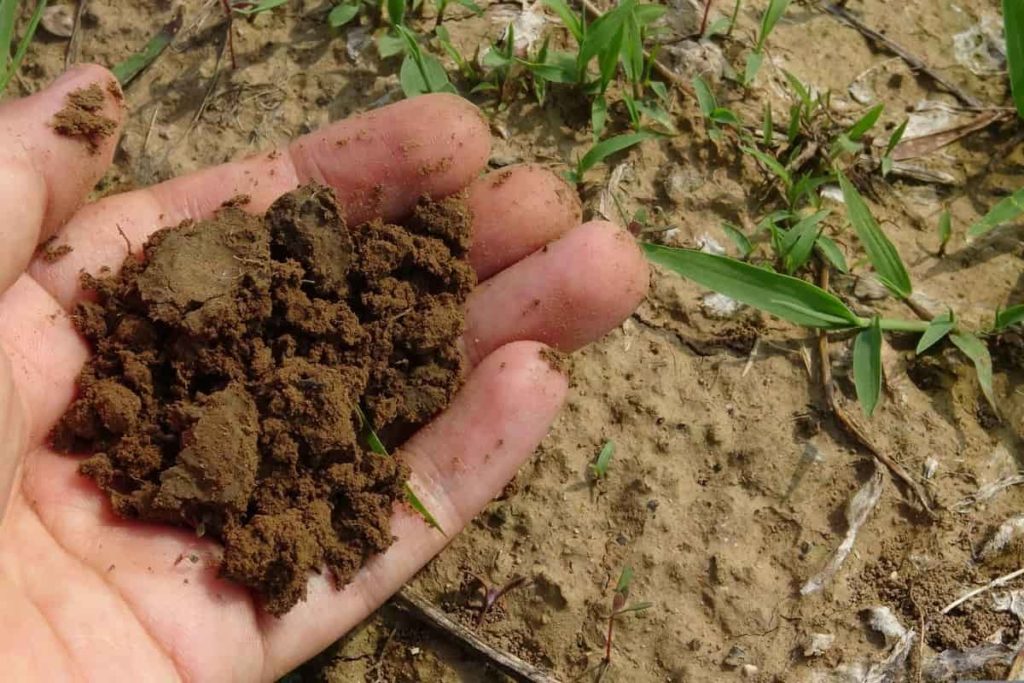
Does sheep manure make good fertilizer?
Sheep manure contains protein, organic acid, cellulose, aliphatics, etc., and its organic matter is higher than other livestock manure. Sheep manure nutrients come from the feed that the animals have eaten, so it should be no surprise that the excrement is an excellent fertilizer. However, without proper fermentation, sheep manure has various harmful bacteria that can not be directly used in growing plants.
It would bring germs and parasites to the garden. And also, it will generate heat to consume oxygen in the soil and burn seedlings and roots. To avoid this, composting sheep manure is an effective animal management tool that kills pathogens and weed seeds and improves soil health and fertility.
What does sheep manure do?
Sheep manure fertilizer is rich in nutrients essential for nourishing a garden. Not only high in phosphorus and potassium, but it is also an excellent source of nitrogen. In addition to helping plants establish strong roots, these nutrients also help them resist pests and grow into vibrant and productive plants. Sheep manure is a safe and effective fertilizer for all garden and landscape plants.
Is sheep manure good for tomatoes?
Sheep manure is an effective and safe fertilizer for all types of gardens and landscape plants. Layer composted sheep manure on gardens or worked it into the soil using a thick layering technique. During watering, sheep manure tea can be diluted and applied to plants. Providing phosphorous, potassium, and nitrogen, sheep manure is especially beneficial for growing tomatoes. To use fresh manure, you must till it into the soil 3-4 weeks before planting; otherwise, it can burn the vegetables.
Will sheep manure burn plants?
Cold and hot manures can both be classified as manures. Compared with other manures, cold manures contain fewer nutrients and come from cows and sheep. The use of sheep manure is widespread among farmers and gardeners; sheep manure is one of the wealthiest fertilizers available. As a natural product rich in organic matter, it doesn’t burn plants when composted and is an excellent way to loosen heavy soil.
How long does manure need to age?
Fresh manure applications can be made at least four months before harvest for crops like carrots, beets, and potatoes where the edible portion is in the soil. Applying fresh manure to other edible crops should be done three months before harvest.
In case you missed it: Common Goat Diseases, Symptoms, and Treatment: Check How this Guide Helps Goat Farmers
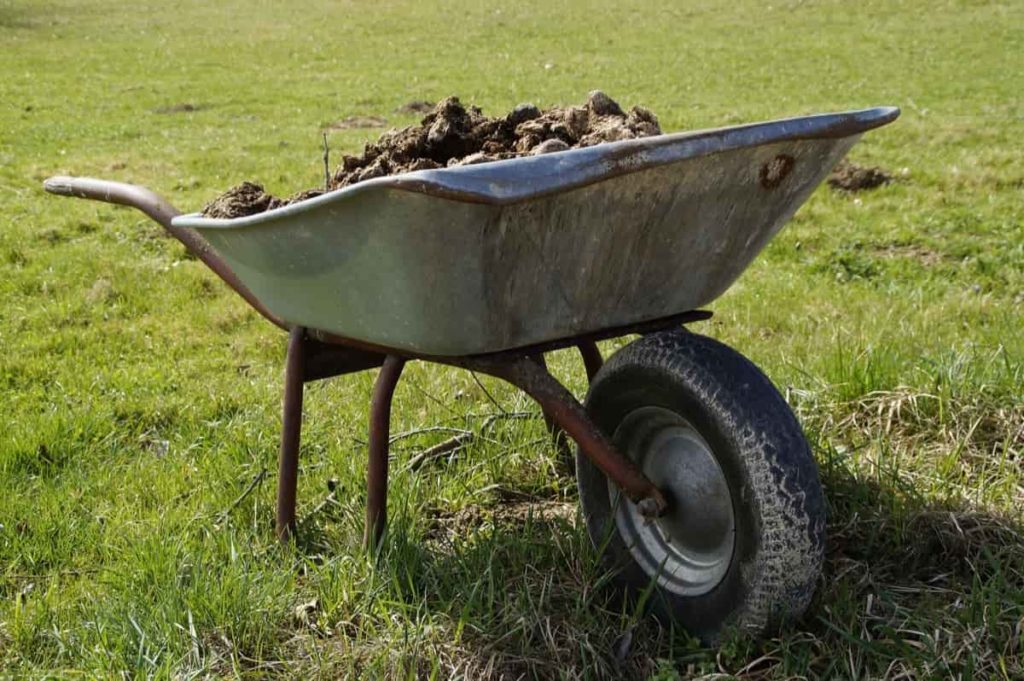
Is sheep manure good for potatoes?
After planting the potatoes, they need to be covered over. After that, spread about 50 mm of sheep manure over the entire surface. Potatoes use this mulch as a special kind of fertilizer. This manure is full of potassium and nitrogen, which is incredible for plants, and the soil is becoming like a magnificent black forest cake topped with icing. Due to its slow-release nitrogen content, it is fantastic stuff. Additionally, it contains potash, making it a magnificent brew.
Conclusion
Sheep manure is one of the alternatives to cow manure, and this Sheep manure can be used as organic fertilizer to provide the required nutrients to plants, whether flowers or vegetables. It has Nitrogen, Phosphorus, and Potassium, which are required for establishing healthy and better root growth and for high yields.
- Management Pests and Diseases in Your Cotton Field
- Sheep Farming Business Plan for Beginners
- Aquaponic Farming at Home: A Step-By-Step Guide
- Profitable Village Farming Business Ideas in 2024
- High-Yield Aquaculture: Fast-Growing Fish for Farming
- Effective Fish Pond Construction Techniques for Beginners
- Irrigation and Water Management in Pineapple Farming
- Blossom to Harvest: Mastering Flowering and Pollination in Papaya Farming
- Pig Fattening Essentials: From Selection to Sale for Beginners
- Raising Wagyu Cattle: A Complete Guide for Premium Beef Production
- Soil Types and Their Water Holding Capacity
- Optimizing Irrigation Schedules for Coconut Groves for Enhanced Yield
- Espresso Your Garden: Coffee Grounds for Healthier Acid-Loving Plants
- The Best Soil Mix for Snake Plants: How to Mix Your Own Snake Plant Soil
- Green Thumb Success: Expert Tips for Cultivating Greenhouse Beans All Year Round
- Bloom All Year Round: The Ultimate Guide to Indoor Hyacinth Care
- Eco-Friendly Gardening: How to Make Liquid Fertilizer from Kitchen Waste
- Ultimate Guide to Grow Anise in Pots: Explore Seed Propagation to Harvesting
- Guide to Raising Chester White Pigs: Discover Breed Facts to Growth Management
- Mastering the Elegance: The Ultimate Guide to Weeping Cherry Tree Care, Planting, and Maintenance
- Ultimate Guide to Planting Garlic in Grow Bags: Growing Strategies for Beginners
- How to Fix Spider Plant Leaf-Related Problems: Natural and Organic Remedies
- 10 Reasons Why Your Tulsi Plant is Shedding Leaves: Home Remedies and Solutions
- Optimizing Growth and Yield: The Advantages of Palm Bunch Ash Fertilizer
- Utilizing Neem Oil Extract as a Natural Pesticide for Hydrangea
- From Soil to Harvest: Various Ways in Which Farmers Can Use AI Tools
- Steps to Encourage and Induce Citrus Flowers: A Comprehensive Guide
- How to Fix Snake Plant Leaf-Related Issues: Natural and Organic Remedies
- Transform Your Garden into a Fragrant Oasis with Raat Ki Rani (Night Blooming Jasmine)
- Discover the Ideal Chicken Breeds for Philippine Farms
- How to Create a Poultry Egg Farm Business Plan for Profits
- Grow Lemon Cucumbers Like a Pro: Insider Techniques for Bountiful Yields
- Ultimate Guide to Caring for Your Pink Princess Philodendron: Tips for Thriving Variegation
- Areca Nut Profit Per Acre: Calculating Yield and Cost of Cultivation
- How Kaveri Chicken is Becoming a More Profitable Breed in Indian Backyards
- Transform Your Barn: 9 Steps to Convert a Horse Stall into a Chicken Coop
